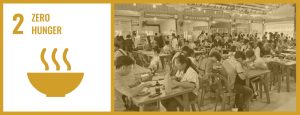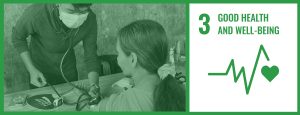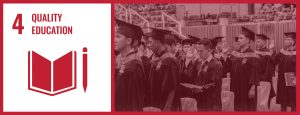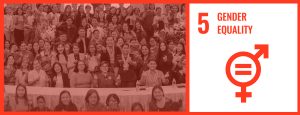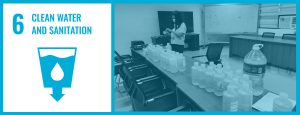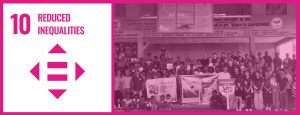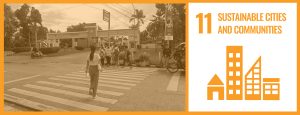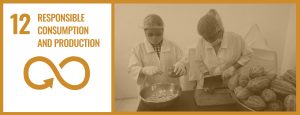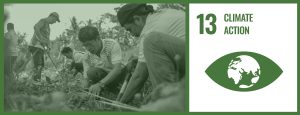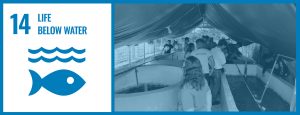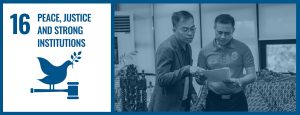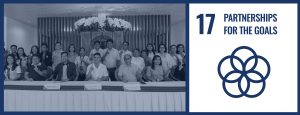2024 Reports | SDG 5 – Gender Equality

Isabela State University (ISU) recognizes its vital role in contributing to Sustainable Development Goal 5: Gender Equality, committed to inclusive and transformative development. Guided by its vision of becoming a leading research center in the ASEAN region, ISU acknowledges that achieving gender equality is both a fundamental human right and a necessary foundation for sustainable development, deeply embedded in its educational, research, and social responsibilities. The University’s mission is to champion gender equality, advocate for social justice, and create a world where every individual, regardless of their gender, can thrive and reach their full potential through gender responsive services, resources, and innovations that contribute to the equal access to opportunities of both women and men.
ISU’s contribution to SDG 5 is reflected through the Gender and Development (GAD) Office and Gender Resources Research and Development Center (GRRDC) which are guided by strategic goals that drive its transformative work. The university work systematically to improve gender mainstreaming in the ISU System with personnel equipped with gender lens; increase gender responsive research and extension projects that help achieve women’s empowerment and increased visibility of the marginalized sectors; enhance curricular programs that promote gender equality through the use of gender-fair language and non-sexist image of women and men; forge strong partnerships with institutions and agencies that champion mainstreaming gender locally and internationally; and establish a knowledge-base management system that provides gender parity.
Building on this foundation, ISU’s programs under SDG 5 are anchored on comprehensive data-driven approaches that systematically track and measure gender equality across multiple areas. The University monitors the proportion of first-generation female students and women starting degrees, implements student access measures that track women’s application rates, acceptance rates, and study completion, and maintains policies that address women’s applications, acceptance, entry, and participation. ISU provides women’s access schemes including mentoring and scholarships, actively encourages applications by women in subjects where they are underrepresented, and tracks the proportion of senior female academics and women receiving degrees across all disciplines even in male dominated areas.
The University has established robust women’s progress measures through non-discrimination policies for women and transgender people, maternity and paternity policies that support participation, accessible childcare facilities for both students and staff, women’s mentoring schemes, and protection policies for those reporting discrimination. Through evidence-based interventions, strategic partnerships, and unwavering commitment to institutional change, ISU works to dismantle structural barriers that limit opportunities and perpetuate inequality. Together, these efforts demonstrate the University’s continuing commitment to transform awareness into systemic change, knowledge into empowerment, and principles into lived equality for the campus community and beyond, marking concrete and meaningful steps toward a future where equality is not just an aspiration, but a lived reality for all.
PROPORTION OF FIRST-GENERATION FEMALE STUDENTS
Student Enrollment
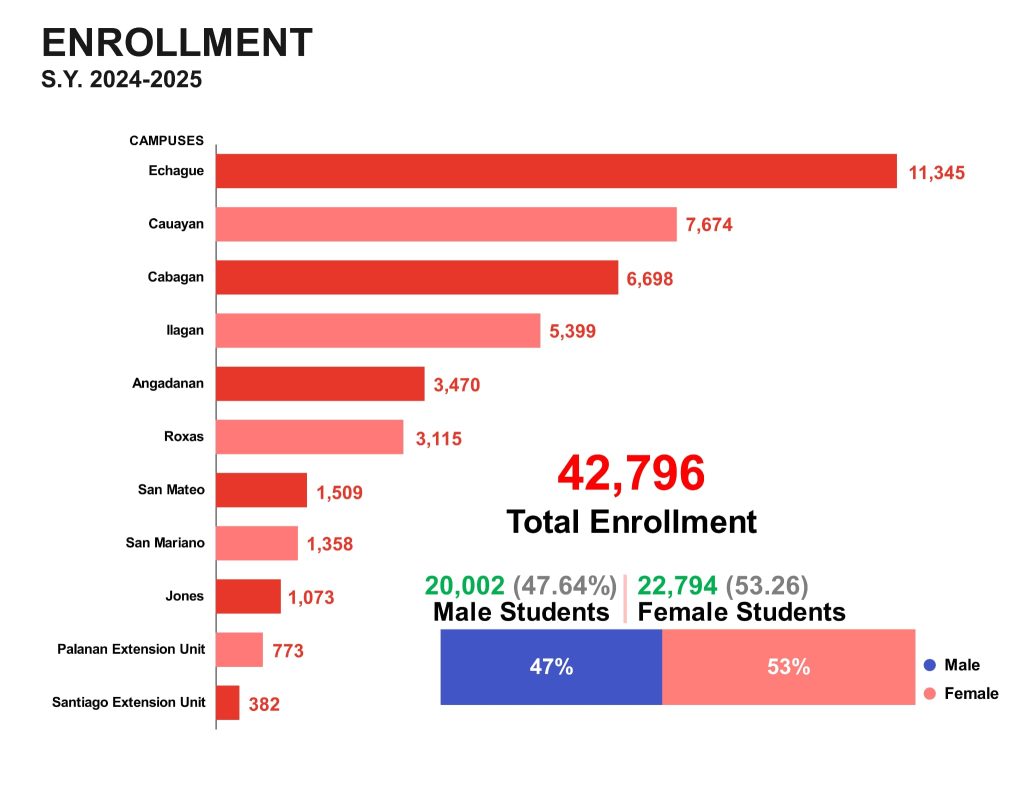
Isabela State University’s 2024 enrollment data tells an encouraging story of gender equality in action. With 53.3% female representation among 42,796 students across eleven campuses, ISU demonstrates that higher education in Isabela province welcomes and attracts women consistently.
Number of students starting a degree
The numbers are particularly meaningful for first-year students. Of 11,616 new enrollees, 53.2% are women, with this pattern holding across campuses from the largest (Echague) to the smallest extension units. Geography poses no barrier—whether in urban centers or remote areas like San Mariano and Palanan, female students comprise the majority or near-majority of incoming classes.
Number of first-generation students starting a degree
Most significantly, ISU is breaking intergenerational barriers. Among 4,998 first-generation university students—those first in their families to pursue higher education—57% are women. This means 2,849 young women are creating new educational pathways for their families, transforming what’s possible for future generations. Campuses like Echague (823 first-generation women), Ilagan (383), and Cabagan (355) are leading this transformation.
These patterns reflect ISU’s systematic gender-responsive policies and access schemes translating into real opportunities. The consistent female majority across all metrics—total enrollment, new students, and especially first-generation learners—proves that commitment to gender equality can produce tangible results, creating an educational environment where women from all backgrounds can thrive and reach their full potential.
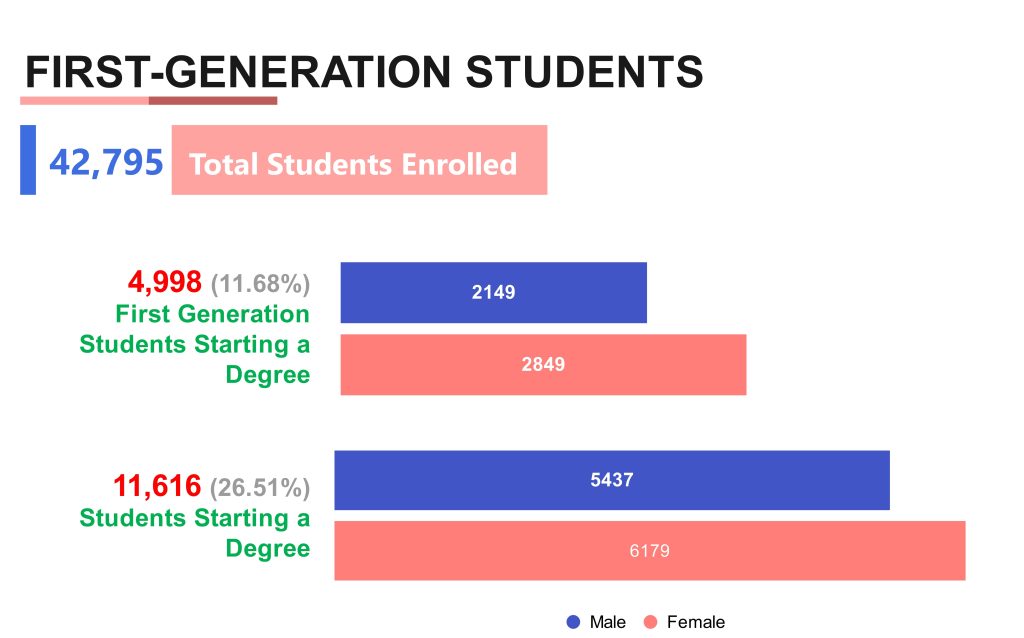
STUDENT ACCESS MEASURES
Tracking Women’s Application, Acceptance, and Completion Rates
Isabela State University has developed a comprehensive approach to understanding its student body through the Student Application College Admission Registration Information and Accounting System (SACARIAS). This integrated system follows students throughout their academic journey—from initial application through acceptance, academic performance, and ultimately degree completion. SACARIAS captures detailed demographic information including age, sex, and ethnicity, allowing the University to see beyond simple enrollment numbers and understand who is accessing education, how they perform, and whether they successfully complete their degrees.
With this data-driven insight, ISU can identify patterns and disparities that might otherwise go unnoticed, particularly regarding women and underrepresented groups. The system transforms raw numbers into actionable intelligence, enabling the University to make informed decisions that foster a more inclusive and equitable educational environment where all students have genuine opportunities to succeed. By capturing detailed data on age, gender, ethnicity, and other relevant demographics, SACARIAS enables the University to identify trends, address disparities, and foster a more inclusive and equitable educational environment.
Policy for Women’s Applications and Entry
Isabela State University (ISU) upholds a non-discriminatory and gender-responsive admissions framework, grounded in national laws such as the Universal Access to Quality Tertiary Education Act (RA 10931), the Magna Carta of Women (RA 9710), and the Magna Carta for Disabled Persons (RA 7277). This ensures that education and employment opportunities are accessible to all, regardless of gender, identity, disability, or background. In compliance with CHED Memorandum Order No. 01, s. 2015, ISU integrates Gender and Development (GAD) principles across its curriculum, research, and extension programs. The University mandates that student admissions and employee hiring be inclusive and gender-fair, employing non-discriminatory and gender-sensitive language in all postings. Furthermore, ISU actively promotes the participation of marginalized sectors, including persons with disabilities and indigenous peoples, reinforcing its commitment to equality, inclusivity, and empowerment in higher education.
Women’s Access Schemes through Mentoring
Isabela State University (ISU) promotes women’s empowerment and employability through its Women Mentoring Scheme under the Technical Vocational Education and Training – Competency Assessment Center (TVET-CAC). This initiative provides women with specialized vocational training and opportunities to earn National Competency Certifications in traditionally male-dominated technical and agricultural fields.
One key program, “Prepare Land leading to Agricultural Crops Production NC III,” conducted at ISU Echague Campus under the Special Training for Employment Program (STEP), produced 23 graduates in 2024. Participants underwent hands-on training in crop production, machinery operation, and farm management, equipping them with essential agricultural skills.
Through these programs, ISU not only offers academic mentoring but also supports women’s entry into non-traditional careers, enabling them to gain recognized qualifications and sustainable employment opportunities in agriculture and related industries.
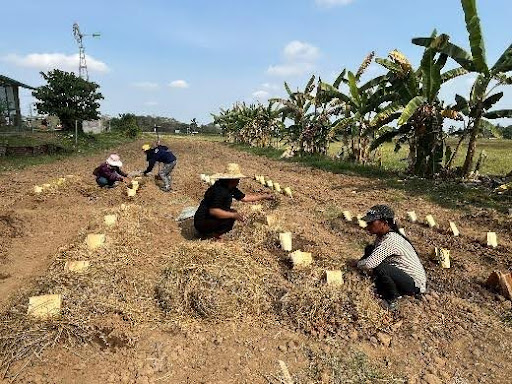



Women’s Application in Underrepresented Subjects
Isabela State University (ISU) Echague Campus, through the Institute of Fisheries (IOF), is currently implementing an extension project titled “Enhancing Women Capability on Smoked Tilapia Production for Food Security and Resiliency in BIDANI Communities”. This on-going project, which runs from January 2024 to December 2025, partners with the Local Government Unit of Echague (LGU Echague) and targets the Mengal Women members from local BIDANI (Barangay Integrated Development Approach for Nutrition Improvement) barangays.
The project’s implementation is divided into two components: first, training 45 women in the specific production of smoked tilapia with lemongrass, and second, a production phase where the trained women utilize a 40 kg start-up investment of tilapia per barangay to market locally and reinvest their income.
To date, the initial training objective has been successfully accomplished, with 45 beneficiaries from the Mengal Women’s Organization (MWO) actively participating. A signed Memorandum of Agreement (MOA) between the institutions ensures continuous technical and marketing support from ISU. While the enterprise establishment and sustainability goals are still ongoing, key lessons learned emphasize the importance of hands-on training over lectures and the critical need to combine technical skills with business and marketing education.



PROPORTION OF SENIOR FEMALE ACADEMICS
Number of Employees
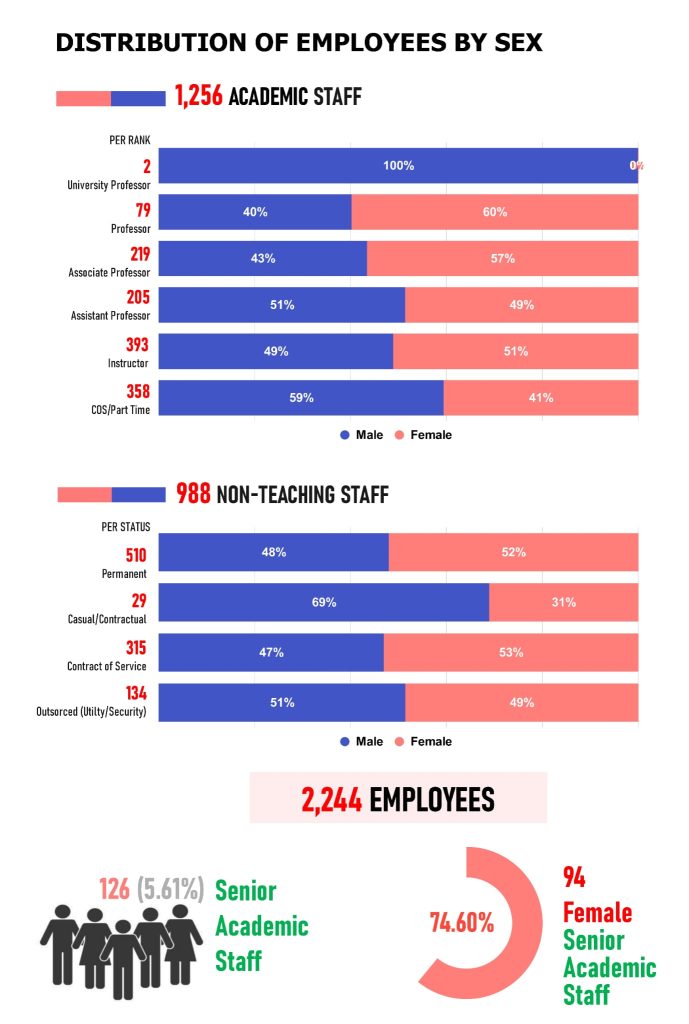
Number of Academic Staff
ISU’s 1,105 academic staff members demonstrate a meaningful achievement in gender balance, with female faculty comprising 51.8% (572 women versus 533 men) of the teaching workforce—providing important role models for the predominantly female student body. This female majority among teaching staff is particularly significant as it challenges traditional assumptions about academic leadership and demonstrates women’s strong presence in higher education instruction. The gender-balanced distribution of qualified academic staff across all campuses ensures students throughout the ISU system receive instruction from diverse faculty equipped to guide their educational success, while several locations achieve perfect gender parity in their teaching workforce. This commitment to balanced faculty representation strengthens the university’s capacity to serve its diverse student population and reinforces ISU’s dedication to gender equality in its most visible professional roles.
Number of Senior Academic Staff
Among ISU’s 265 senior academic staff members, women hold a clear majority at 58.5%, demonstrating significant female representation in leadership positions across the university system. This gender distribution is particularly striking given that women often face barriers to advancement in higher education leadership roles globally. The strong female presence in senior positions—outnumbering men by 45 individuals—indicates that ISU has successfully created pathways for women to reach top academic ranks and decision-making roles. This leadership pattern reflects the university’s commitment to gender equality not just at entry levels but throughout the organizational hierarchy, ensuring that women’s voices and perspectives shape institutional policies, academic standards, and strategic directions. The substantial representation of women in senior positions also creates a pipeline of mentorship and role models for the next generation of leaders, reinforcing a culture where advancement opportunities are genuinely accessible regardless of gender.
PROPORTION OF WOMEN RECEIVING DEGREES
Total Number of Graduates
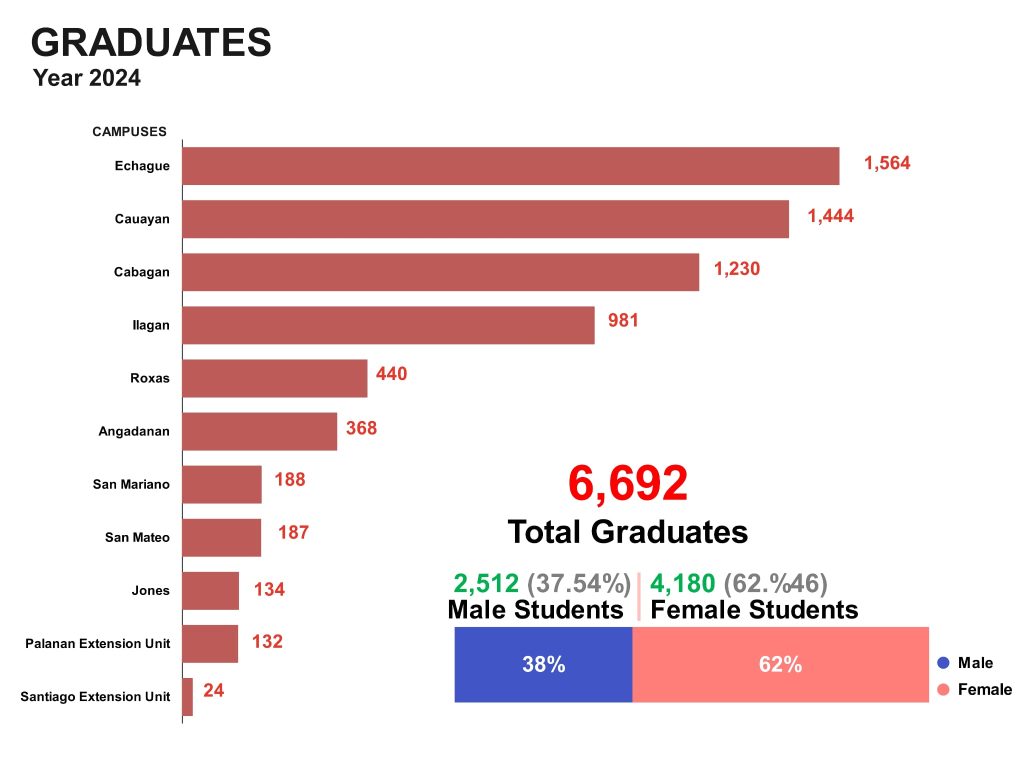
ISU produced 6,692 graduates, with female graduates comprising a substantial 62.6% (4,187 women versus 2,505 men)—outnumbering male graduates by 1,682. This significant gender gap demonstrates that ISU not only attracts female students but that women complete their degrees at notably higher rates than their male counterparts. The pattern holds consistently across all campuses and extension units. These graduation rates exceed even the female enrollment majority, indicating strong academic persistence among women students. ISU’s success in supporting women through to degree completion produces educated women poised to contribute professionally and economically to Isabela province, representing families transformed and communities strengthened through higher education access.
Total Number of Graduates by Subject Area
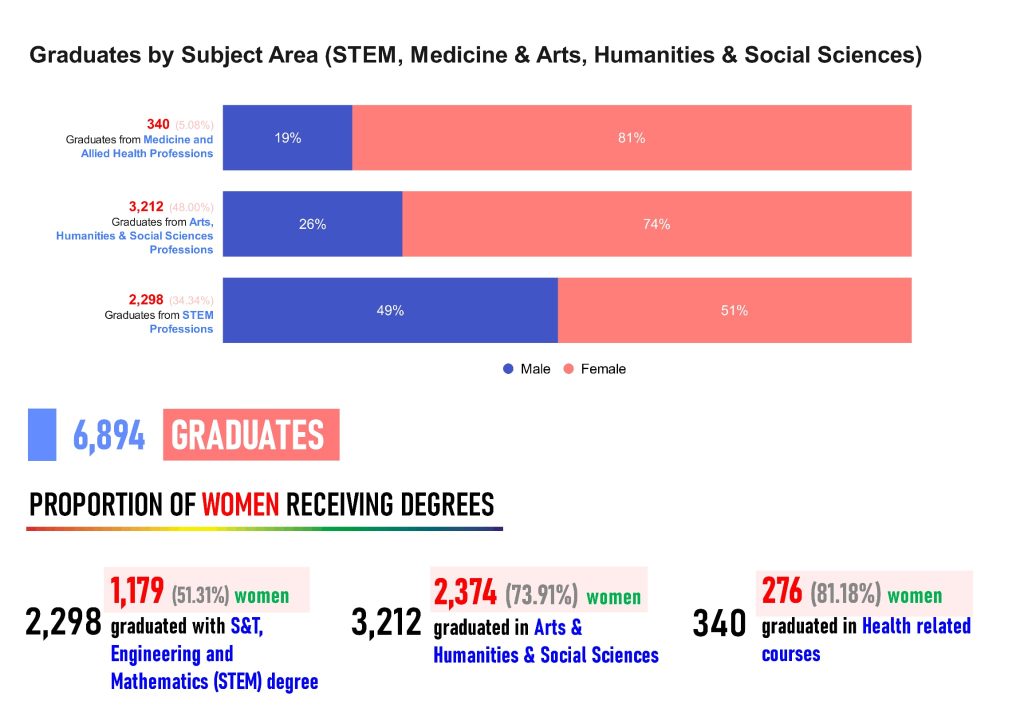
Number of Graduates: STEM
Among ISU’s 2,298 STEM graduates, women comprise 51.3% (1,179 female versus 1,119 male graduates), demonstrating near-perfect gender parity in fields traditionally dominated by men. This balanced representation in science, technology, engineering, and mathematics programs indicates that ISU has successfully created an inclusive environment where women pursue and complete technical degrees at rates equal to or exceeding their male peers. The pattern varies across campuses, with some showing stronger female representation in STEM fields while others lean slightly male, but the overall system-wide balance reflects ISU’s effectiveness in breaking down gender barriers in technical education. These STEM-educated women graduates are positioned to enter high-demand careers in technology, healthcare, engineering, and scientific research, contributing to both economic development and the diversification of technical professions in Isabela province and beyond.
Number of Graduates: Medicine
ISU produced 206 medicine graduates, with women comprising an overwhelming 80.6% (166 female versus 40 male graduates), demonstrating strong female predominance in healthcare fields. This 4-to-1 female-to-male ratio reflects global trends where women increasingly pursue medical and health-related careers, driven by both aptitude and interest in caring professions. Medicine programs are concentrated in only two campuses, with the larger program showing particularly strong female representation. These women graduates are entering critical healthcare roles at a time when medical professionals are in high demand, positioning them to address health needs across Isabela province while challenging any remaining stereotypes about gender roles in medicine and healthcare leadership.
Number of Graduates: Arts & Humanities / Social Sciences
ISU produced 3,212 graduates in Arts, Humanities, and Social Sciences, with women comprising 73.9% (2,374 female versus 838 male graduates), representing the strongest gender disparity across all academic fields. This nearly 3-to-1 female-to-male ratio reflects consistent patterns across education, social work, communication, and humanities disciplines where women have traditionally been well-represented. The trend holds across all campuses, indicating that women throughout the ISU system are drawn to fields focused on human development, social impact, and cultural understanding. While this female predominance demonstrates women’s strong access to these disciplines, it also raises questions about encouraging more balanced gender participation across all fields, ensuring both men and women have equal opportunities to pursue careers in education, social services, and the humanities.
WOMEN’S PROGRESS MEASURES
Policy of Non-Discrimination Against Women
Isabela State University (ISU) upholds a strong institutional commitment to equality, inclusivity, and the protection of women’s rights across all academic and administrative spheres. Through its Enhanced Policy on Non-Discrimination and Inclusivity in Workplaces, ISU ensures that no individual experiences bias or unequal treatment based on sex, gender identity or expression, sexual orientation, religion, ethnicity, disability, age, political belief, or socioeconomic background. Anchored in national mandates such as the Magna Carta of Women (RA 9710) and CHED Memorandum Orders on Gender Sensitivity (Series of 2015), this policy reinforces ISU’s proactive stance against workplace discrimination. To operationalize these principles, the University implements mandatory gender sensitivity seminars, anti-discrimination orientations, and inclusivity training for all employees and students. Through these sustained efforts, ISU cultivates a safe, equitable, and empowering environment that upholds human dignity and women’s advancement in education and employment.
Moreover, the University has also enforced a comprehensive Policy on Non-Discrimination to Women and the LGBTQ+ Community, which further strengthens the University’s commitment to upholding gender equality, human dignity, and inclusivity in all aspects of academic and administrative life. It ensures that no student, faculty member, or staff is subjected to unequal treatment, exclusion, or bias based on their sex, sexual orientation, gender identity, or gender expression.
Policy on Non-Discrimination Against Transgender People
Isabela State University (ISU) enforces a comprehensive Policy on Non-Discrimination to Women and the LGBTQ+ Community, which explicitly includes protections for transgender individuals. This policy affirms the University’s commitment to upholding gender equality, human dignity, and inclusivity in all aspects of academic and administrative life. It ensures that no student, faculty member, or staff is subjected to unequal treatment, exclusion, or bias based on their sexual orientation, gender identity, or gender expression.
The policy mandates that all university personnel and offices respect and recognize diverse gender identities—including transgender, cisgender, and non-binary individuals—in both written and verbal communication, institutional records, and daily interactions. It also promotes the consistent use of gender-fair and inclusive language across all university operations, communications, and publications.
Moreover, ISU’s non-discrimination framework is reinforced through the initiatives of its Gender and Development (GAD) Office, which provides awareness training, advocacy programs, and support mechanisms to address gender-based discrimination and ensure a safe, respectful environment for all members of the academic community. Through this policy, ISU not only complies with national gender-equality laws but also actively champions the rights, safety, and visibility of transgender people, promoting a truly inclusive and equitable campus culture.
Maternity Policy
Isabela State University (ISU) upholds its commitment to gender equity and family welfare by ensuring that both women and men are supported in balancing their professional and family responsibilities. In compliance with Republic Act No. 11210, the Expanded Maternity Leave Law, female employees have an option to receive one hundred five (105) days of paid maternity leave—providing financial security and adequate recovery time without penalty to their careers or employment status—or extend for an additional thirty (30) days without pay, and granting an additional fifteen (15) days for solo mothers and for other purposes. This protection allows women faculty and staff to embrace motherhood while maintaining their professional roles within the university.
Childcare Facilities for Students, Staff and Faculty
Isabela State University demonstrates an inclusive approach to childcare support by operating a Child-Minding Facility that serves the entire university community. The facility welcomes children of both student mothers and university personnel—staff and faculty alike—providing the same comprehensive childcare services to all users. Whether a woman is pursuing her degree or building her career at the university, she has access to quality childcare that enables her to focus on her responsibilities. The facility also provides lactation support, recognizing that nursing mothers need private, comfortable spaces to maintain breastfeeding while fulfilling their academic or professional commitments. By serving students and employees, ISU removes childcare as a barrier to participation for all women in the university community, demonstrating that work-life balance support should not depend on one’s role but should be a universal resource enabling mothers to thrive in their educational and professional pursuits.
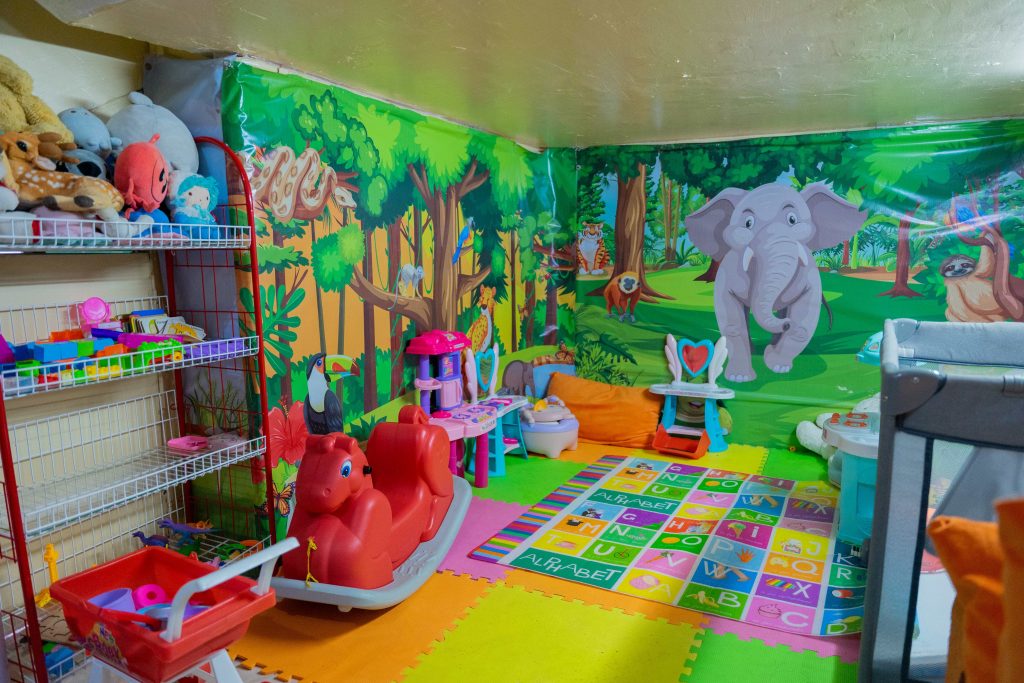
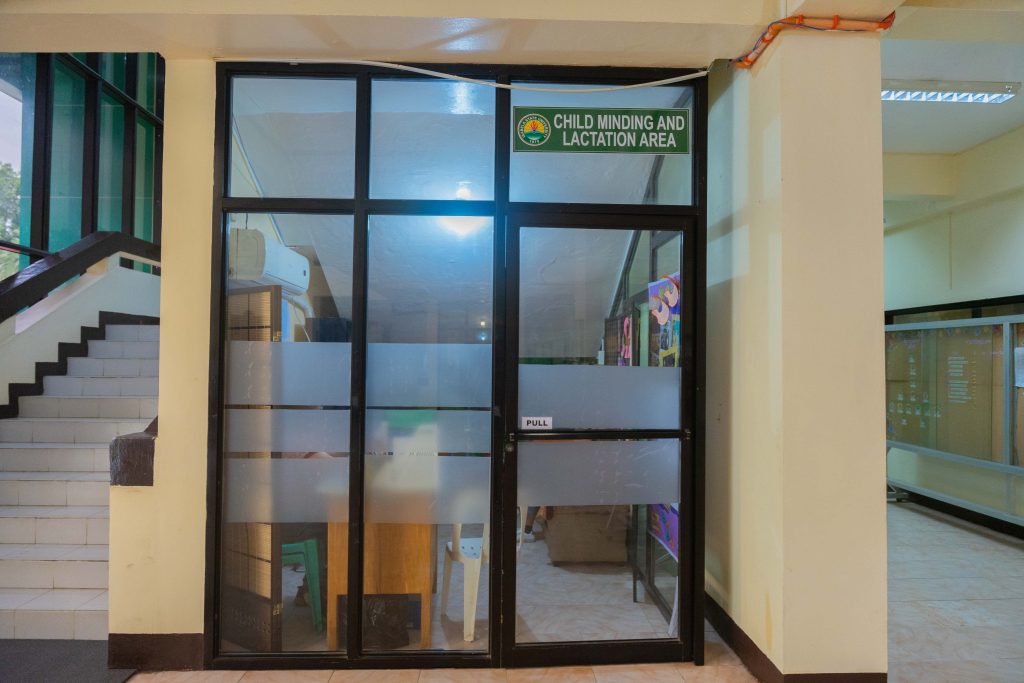
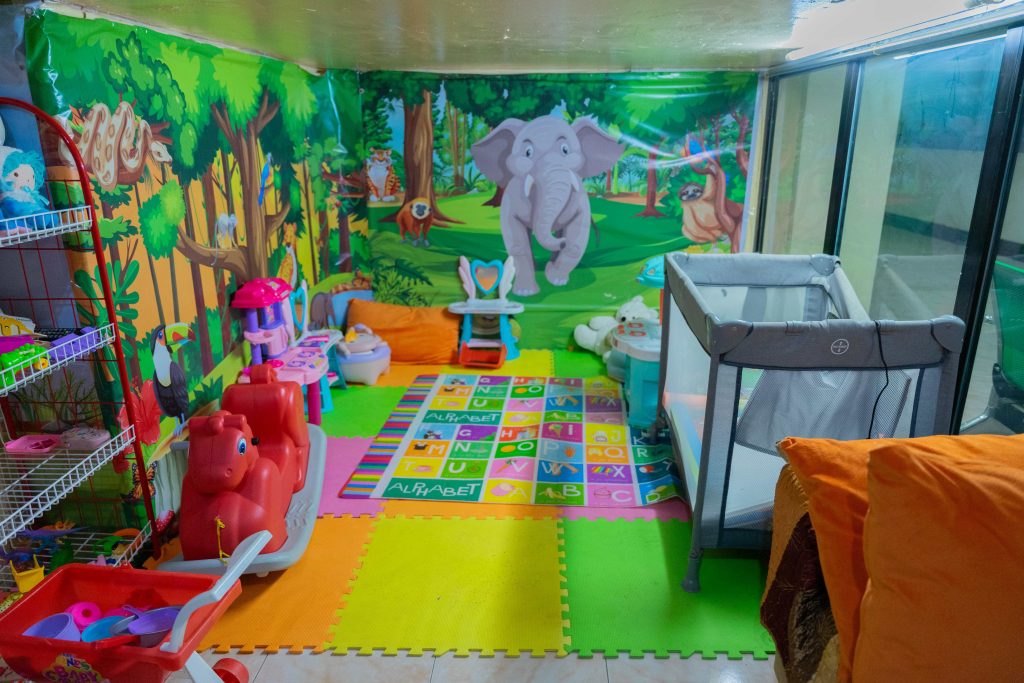
Women’s Mentoring Schemes
Isabela State University has developed women’s empowerment programs that extend beyond traditional academic mentoring to address real-world career barriers. The ISU Women Mentoring Scheme operates through the Technical Vocational Education and Training – Competency Assessment Center (TVET-CAC), which provides specialized vocational education and pathways to National Competency Certifications. These programs strategically target male-dominated agricultural and technical fields where women have historically faced entry barriers, including Agricultural Crops Production, Horticulture, Rice Farm Machinery, Organic Agriculture Production, and Agro-entrepreneurship and Marketing. By combining mentorship with formal certification, ISU does not simply encourage women to consider these fields—it equips them with nationally recognized credentials that validate their expertise and enhance their employability. This approach recognizes that empowering women in non-traditional sectors requires both the confidence-building support of mentorship and the tangible qualifications that enable them to compete effectively in the workforce, transforming aspiration into genuine professional opportunity.
Tracking Women’s Graduation Rate
Isabela State University (ISU) recorded a total of 6,692 graduates, with women constituting 62.6% (4,187) compared to 37.4% (2,505) men—showing a remarkable female majority of 1,682 graduates. This strong representation highlights ISU’s success in promoting women’s access to and completion of higher education. The trend is consistent across campuses and extension units, reflecting the university’s inclusive academic environment and sustained gender-responsive programs. Notably, the proportion of female graduates surpasses even their enrollment share, underscoring women’s high academic performance and persistence. ISU’s achievement in enabling women to earn degrees translates into broader social impact, empowering female graduates to contribute significantly to professional sectors, local governance, and community development within the province of Isabela and beyond.
Policies Protecting those Reporting Discrimination
Isabela State University (ISU) established a mechanism for reporting discrimination through its Enhanced Policy on Non-Discrimination and Inclusivity in Workplaces, formalized in Office Order No. 19 of 2022. This comprehensive policy, aligned with Republic Act No. 9710 and CHED guidelines, creates confidential pathways for reporting educational or employment disadvantages through the Human Resource Management Office or the Office of Students Affairs and Services. Trained personnel serve as accessible contact points, guiding reporters through the process with sensitivity and expertise.
When reports are filed, the University responds through fair and impartial investigations conducted by the Committee on Decorum and Investigation (CODI), ensuring that complaints receive serious attention and thorough review. Based on investigation findings, ISU implements appropriate responses ranging from support services and reasonable accommodations to corrective measures addressing the discrimination. This structured approach demonstrates the University’s commitment to addressing disadvantages systematically, ensuring that those who experience discrimination have clear mechanisms to seek resolution and support within the institution.
Paternity Policy
Isabela State University (ISU) upholds its commitment to gender equity and family welfare by ensuring that both men and women are supported in balancing their professional and family responsibilities. In compliance with Republic Act No 8187, the Paternity Leave Act, all married male employees are entitled to seven (7) days of paternity leave with full pay for the first four (4) deliveries of their legitimate spouse with whom they are cohabiting. This progressive policy recognizes that childcare is a shared responsibility and actively supports women’s workforce participation by enabling fathers to be present during the crucial early days of their child’s life. This paternity leave provision reflects the university’s evolving understanding of workplace equity. By allowing non-gestational parents to take time off during the critical postpartum period, the university enables fathers to actively participate in childcare duties, share the domestic workload, and provide essential support to their partners.



